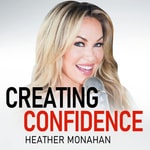Translating Aging – Détails, épisodes et analyse
Détails du podcast
Informations techniques et générales issues du flux RSS du podcast.

Translating Aging
BioAge Labs
Fréquence : 1 épisode/26j. Total Éps: 60

Classements récents
Dernières positions dans les classements Apple Podcasts et Spotify.
Apple Podcasts
🇫🇷 France - lifeSciences
02/08/2025#50🇫🇷 France - lifeSciences
01/08/2025#37🇫🇷 France - lifeSciences
31/07/2025#33🇫🇷 France - lifeSciences
30/07/2025#29🇫🇷 France - lifeSciences
29/07/2025#28🇫🇷 France - lifeSciences
28/07/2025#22🇺🇸 États-Unis - lifeSciences
27/07/2025#67🇫🇷 France - lifeSciences
27/07/2025#12🇬🇧 Grande Bretagne - lifeSciences
22/07/2025#97🇬🇧 Grande Bretagne - lifeSciences
20/07/2025#89
Spotify
Aucun classement récent disponible
Liens partagés entre épisodes et podcasts
Liens présents dans les descriptions d'épisodes et autres podcasts les utilisant également.
See all- https://www.oneskin.co/
2115 partages
- https://www.nih.gov/
58 partages
- https://dogagingproject.org/
33 partages
- https://twitter.com/BioAgePodcast
28 partages
- https://twitter.com/bioagelabs?lang=en
27 partages
- https://twitter.com/NirBarzilaiMD
1 partage
Qualité et score du flux RSS
Évaluation technique de la qualité et de la structure du flux RSS.
See allScore global : 73%
Historique des publications
Répartition mensuelle des publications d'épisodes au fil des années.
Hevolution: Extending Global Healthspan (Dr. Mehmood Khan, CEO)
Épisode 52
mercredi 17 juillet 2024 • Durée 43:14
In this episode, Chris Patil speaks with Dr. Mehmood Khan, CEO of Hevolution Foundation, about the organization's mission to extend healthy human lifespan and better understand the aging process. Dr. Khan discusses Hevolution's unique approach to funding global scientific discovery and investing in private companies dedicated to advancing aging science. He shares insights into the challenges and opportunities in the field of longevity research, the importance of global collaboration, and the potential impact of extending healthspan on societies worldwide.
The Finer Details:
- Hevolution Foundation's origin and mission
- The importance of aging research in the context of global challenges
- Hevolution's collaborative approach and funding strategies
- Challenges in translating aging research into accessible interventions
- The need for validated biomarkers in aging research
- Global perspectives on aging, including challenges in developing countries
- The importance of policy engagement and public awareness in advancing the field
Harnessing the Secretome to Combat Age-Related Immune Dysfunction (Dr. Hans Keirstead, Immunis)
Épisode 51
mercredi 8 mai 2024 • Durée 47:38
Hans Keirstead, PhD, is the Chairman of the Board at Immunis, a biotechnology company researching and developing immune secretome products to address age-driven immune deficits. In this episode, Chris and Hans discuss Immunis' approach to targeting the aging immune system as a key driver of age-related disease. They explore the potential of immune secretome factors to restore youthful immune function, the promising results from Immunis' preclinical and early clinical studies, and the future of immune-modulating therapeutics to extend healthspan.
THE FINER DETAILS
- The critical role of the immune system in the aging process and age-related disease
- Immunis' focus on immune precursor cell secretome factors to restore youthful immune function
- Preclinical studies demonstrating the effects of Immunis' secretome product on muscle growth, metabolism, and inflammation in aged mice
- Early results from Immunis' Phase 1/2a clinical trial in older adults with muscle atrophy and knee osteoarthritis
- The potential for immune secretome therapeutics to treat a wide range of age-related conditions and enhance healthspan
- The importance of developing affordable and accessible therapies to maximize impact
QUOTES
- "Every manifestation of aging is immunologically mediated. It's phenomenal. When one ages, your immune system in 100% of humans gets angry, so becomes highly pro-inflammatory."
- "Our drug is not a stem cell. It's not an immune cell. It is the secretion set, that same secretion set that you and I have, and everyone on this earth has, that precipitously declines with age, and now we're able to restore it."
- "We showed that IMMUNA fundamentally changes gene expression in order to promote the expression of genes for growth and regeneration. And then it inhibits the expression of genes that inhibit growth and regeneration."
- "I believe that this [secretome therapeutic] is going to be taken prophylactically by most humans, every quarter or so, to keep their immune system young, keep their immune system in a prophylactically competent state."
- "I want this thing to be available to everyone who wants it at an extremely low price, so that we can keep people alive, so that we can keep them disease free, so they can have productive years in their golden times, in their older age."
LINK TO PAPER
Discovering New Senolytics with Neural Networks (Felix Wong, Integrated Biosciences)
Épisode 42
mercredi 9 août 2023 • Durée 37:01
Dr. Felix Wong is a co-founder of Integrated Biosciences, an early-stage biotech company developing next-generation therapeutics for cellular rejuvenation. He is also a postdoc at MIT and the Broad Institute and was a lead author on a recent Nature Aging paper describing the use of graph neural networks to discover new senolytic compounds.
In this episode, Felix and host Chris Patil have an in-depth discussion about using machine learning to accelerate drug discovery, specifically to target cellular senescence. They explore how graph neural networks were trained on screening data to evaluate large chemical spaces and identify new senolytic molecules with medicinal properties superior to those of previously known compounds.
Key topics:
- What cellular senescence is and why selectively eliminating senescent cells may have therapeutic benefits for aging and age-related diseases
- Limitations of traditional high-throughput screening approaches and the vastness of chemical space
- How graph neural networks work and how Felix’s team trained them on senolytic screening data
- Applying the models to search much larger chemical libraries and identify promising new senolytic scaffolds
- Experimental validation and characterization of hits from the AI screening
- The potential to use this machine learning approach more broadly for phenotypic drug discovery
- Felix’s new company Integrated Biosciences and their mission to control cellular stress responses using synthetic biology and AI
Quotes:
Quotes have been lightly edited for clarity.
"We found that machine learning models might allow us to more productively search chemical space and increase our working hit rates."
"What was fascinating to us about senescence cells is that, unlike other pathologies or diseases, these cells are not really characterized by a single target."
"The quality of any machine learning model is limited by the quality of the training data. And that in turn is limited by how good your screens are, and how good your understanding of the biology is."
“That's really what machine learning is doing, trying to think about things in a very high dimensional manner. And then trying to build models that help to separate what is positive and what is negative.”
“So what ideally we would want is for any model to be able to generalize, to be able to predict chemical scaffolds that the model has not previously seen, and positively identify those scaffolds as new senolytics.”
"Ideally, we would like to treat aging and age-related diseases, just like how antibiotics treat bacterial infections."
“At Integrated, we're trying to kind of look at these stress responses holistically. We think that senescence is only a piece of the bigger puzzle.”
Links:
Email questions, comments, and feedback to podcast@bioagelabs.com
Translating Aging on Twitter: @bioagepodcast
BioAge Labs Website bioagelabs.com
BioAge Labs Twitter @bioagelabs
BioAge Labs LinkedIn
“Taking disease by sTORm”: Developing Rapalogs to Extend Healthy Lifespan (Joan Mannick, Tornado Therapeutics)
Épisode 41
mercredi 26 juillet 2023 • Durée 29:16
Joan Mannick, CEO and co-Founder of Tornado Therapeutics, joins the podcast to discuss her company’s exciting mission of developing a new generation of rapalog compounds specifically targeting the TORC1 complex. Rapalogs are analogs of the natural compound rapamycin, which has been shown to extend lifespan and healthspan in animal models by inhibiting the TOR pathway. However, rapamycin has limitations that have prevented its widespread clinical use for aging-related conditions.
Tornado aims to overcome these limitations by developing a portfolio of novel rapalogs licensed from Novartis, which were specifically designed to be more selective TORC1 inhibitors with improved drug-like properties relative to rapamycin. Early data suggests these compounds may have an improved safety profile and remain effective at treating diseases like cancer.
In her conversation with host Chris Patil, Dr. Mannick provides an accessible overview of TOR signaling biology and shares insights from her extensive experience developing rapalogs. The discussion covers Tornado’s strategic approach to indications like oncology and viral infections, the process of characterizing their licensed compounds, and notable milestones on the horizon.
Dr. Mannick provides an insider perspective on a compelling longevity biotech company striving to translate the promise of rapalogs into effective medicines for age-related diseases.
Key topics:
- An overview of the TOR signaling pathway, the TORC1 and TORC2 complexes, and how the natural compound rapamycin inhibits TOR function.
- The benefits and limitations of using rapamycin/rapalogs clinically, and the need for more selective TORC1 inhibitors with improved drug properties.
- Tornado’s licensing of novel TORC1-specific rapalogs from Novartis, including early safety data.
- Indications that Tornado is initially pursuing, including oncology and viral infection, applying lessons learned about rapalogs over the past decade.
- The experience of being a “pipeline company” within the Cambrian Biopharma family, and the synergies available to companies operating within this model.
- The maturation of the longevity biotech field
- Promising milestones on Tornado’s horizon.
Quotes:
Quotes have been lightly edited for clarity.
"Rapamycin is a very specific inhibitor of this critical protein mTOR that regulates lifespan and healthspan."
“An ideal rapalog to treat aging-related conditions and extend lifespan is predicted to be a rapalog that specifically inhibits TORC1, but leaves TORC2 alone.”
"The problem with rapamycin is that it has no remaining patent life. And we really have to do the studies to see if the benefit outweighs the risks."
“[Cambrian] enabled me to go very fast in terms of execution - you get a team, which is very rare when you start a startup.”
"Longevity medicine is white space ready to be explored. It's an untapped area that could transform the practice of medicine."
“We are picking indications where there's not just preclinical validation, but a lot of clinical validation.”
“We're going to use these lessons learned to see if with a better clinical development plan, we can now develop our next generation rapalogs to enhance antiviral immunity and decrease severity of viral respiratory tract infections.”
Links:
Email questions, comments, and feedback to podcast@bioagelabs.com
Translating Aging on Twitter: @bioagepodcast
BioAge Labs Website...
Discovering Healthspan Interventions through Phenotype-Based Drug Screening (Mitchell Lee, Ora Biomedical)
Épisode 40
mercredi 12 juillet 2023 • Durée 32:16
Mitchell Lee is the CEO and co-founder of Ora Biomedical, a Seattle-based biotech company using large-scale phenotypic drug screening in C. elegans to discover small molecule therapeutics that extend lifespan and healthspan.
In this episode, Chris and Mitch discuss Ora's approach to drug discovery, which focuses on function and phenotype rather than specific targets or mechanisms. Using their proprietary "WormBot" platform, Ora screens thousands of compounds in parallel to identify molecules that impact lifespan, healthspan, and age-related disease phenotypes, allowing them to discover new longevity interventions in an unbiased, hypothesis-agnostic way.
Key topics:
- How Ora Biomedical was founded out of a conversation between Dr. Lee and his mentor Dr. Matt Kaeberlein about spinning out a company based on the WormBot technology
- Why C. elegans is a useful model organism for discovering fundamental mechanisms of aging that can translate to mammals
- How the WormBot platform uses imaging and machine learning to measure worm lifespan, healthspan, behaviors, and response to drugs at a large scale
- Ora's goal of screening 1 million compounds within 3 years to find the most promising longevity interventions
- Strategies for translating hits from the worm screen into rare disease therapies and direct-to-consumer natural products
- The promise of longevity interventions discovered through unbiased phenotypic screening to prevent age-related diseases and transform human health
Quotes:
Quotes have been lightly edited for clarity.
“What really sets us apart is that we do phenotypic screening, in live animals."
"If you are finding interventions that target those fundamental drivers of aging, you expect them to have multiple different impacts on age-associated diseases. But as we test more longevity interventions, we see that they also have all kinds of different impacts on non–age-associated disease models.
“It’s really just taking the geroscience hypothesis seriously: If an intervention impacts aging, it’s likely to have impacts across many different disease stages, even ones that we wouldn’t necessarily think about as being related.”
“We've seen examples of how this plays out with things like rapamycin. So it's really incredible the types of therapeutic benefits that can be had through these kinds of interventions.”
"There's going to be a never before seen boom in enthusiasm, interest, engagement, and demand for longevity therapeutics. And what we're doing today is putting ourselves in the position where we're going to be able to meet that challenge in the next three to five years."
Links:
Email questions, comments, and feedback to podcast@bioagelabs.com
Translating Aging on Twitter: @bioagepodcast
BioAge Labs Website bioagelabs.com
BioAge Labs Twitter @bioagelabs
BioAge Labs LinkedIn
Synergizing Synbio & Longevity: A Panel Discussion at SynBioBeta 2023
Épisode 39
mercredi 31 mai 2023 • Durée 42:31
This special episode features a panel discussion moderated by Chris Patil at the 2023 SynBioBeta conference. The panel brings together leaders from the synthetic biology and longevity communities to explore opportunities for collaboration and cross-pollination between these fields. Panelists discuss the talent bottleneck in longevity research, challenges in translating new discoveries into therapies, the need for improved communication and education, and a shared vision for transforming health and society. The conversation covers existing resources for learning about longevity science, as well as calls to build new communities and networks to accelerate progress. Overall, the panel makes a compelling case that by coming together, synthetic biologists and longevity advocates can achieve breakthroughs that neither field could accomplish alone.
Guests:
- Nathan Cheng, Longevity Biotech Fellowship
- Stephanie Dainow, Lifespan.io
- Daniel Goodman, UCSF
- Kat Kajderowicz, MIT/Whitehead
The Details
- The talent shortage in longevity research and need to attract people from outside the field
- Challenges in developing model systems and translating discoveries from simple organisms to humans
- The role of improved communication, education and “edutainment” in enabling progress
- Existing online resources and communities in longevity science and synthetic biology
- The Time Fellowship and opportunities to get involved for students and early career researchers
- Visions for how synthetic biology could enhance longevity research, including new tools for measurement and diagnostics
- Hopes for progress in the short, medium and long term, from gaining years of healthspan to far future transformational changes
- The importance of breaking down silos, incentivizing collaboration and taking action to achieve ambitious goals
Quotes:
Quotations have been lightly edited for clarity.
Nathan Cheng
- “A lot of people here asked me the difference between working on diseases of aging versus aging itself. And I think a lot of people aren't aware that age-related diseases like cardiovascular disease, Alzheimer's disease, even cancer — these are late-stage manifestations of the aging process itself.”
- “I think it's incumbent on us within the longevity community to go seek out the tool developers because they are inundated with all this interest from other players in other fields.”
Stephanie Dainow
- “When it comes to aging, a lot of people you are under the impression that you're born, you will age there probably will be suffering, and then you will die. And that is the cycle of life. Right? That's kind of a standard. And I think this field is pushing that narrative in a direction that is uncomfortable because we're not used to it.”
- “Incentive structures matter. And in longevity, there aren't a lot of organizations that have products yet — forget the supplements, I'm talking about therapeutics — and that means that there aren't business development people, which means there's no selling, which means there's no marketing, which means there's no focus on articulation of the best way to create a narrative around the value prop.”
Dan Goodman:
- “Synthetic biology has lots to offer, as far as measurement and diagnostics and being able to cheaply and at scale measure the effects of aging and the effects of longevity therapies on large populations.”
- “As we get more comfortable, and we get more and more skilled at deploying these tools for disease, it'll be to the point that healthy people will be willing to take these sorts of therapies. and we can do so much to modify the body and immune...
Nurturing the Next Generation of Leaders in Aging Biology (Dr. Courtney Hudson-Paz, Time Initiative)
Épisode 38
mercredi 17 mai 2023 • Durée 22:50
In this episode of Translating Aging, host Chris Patil is joined by Dr. Courtney Hudson-Paz, the Founder and Program Director of the Time Initiative, an organization whose mission is to build a network of undergraduate leaders in aging biology.
Courtney takes us on a journey into the world of aging biology and the mission of the Time Initiative, highlighting how this groundbreaking organization is cultivating the next generation of leaders. She shares her insights into the importance of early engagement in scientific research, the challenges faced by longevity research, and the transformative potential of geroscience.
In addition, Courtney explains how the core component of the Time Initiative's program, the Time Fellowship, offers a unique opportunity for talented individuals to engage in impactful research, community-building, and mentorship. She notes the pressing need to address age-related diseases and describes the Time Initiative's efforts to create a diverse and inclusive ecosystem in aging biology. She also celebrates the fact that the contributions of ambitious young minds in the field have the potential to accelerate scientific progress and significantly reshape the field of aging biology.
In this podcast, you will learn about the mission and impact of the Time Initiative and discover the strategic importance of early engagement in scientific research and the transformative potential of geroscience. You will also gain insights into the Time Fellowship, as well as the importance of building a diverse and inclusive ecosystem in aging biology, and the role it plays in shaping the future of the field.
Outline
- The Time Initiative’s mission to inspire and cultivate future leaders in aging biology by supporting undergraduates
- The need to expand the talent pool and workforce to drive progress in aging research
- The potential of geroscience and rejuvenation biotech to transform human health and society
- Collaborative efforts with the American Federation for Aging Research (AFAR)
- Events, resources, and opportunities available through The Time Initiative to educate students about aging research
- The Time Fellowship program:
- Open to all disciplines
- All-expenses paid annual retreat
- Community group and mentorship opportunities
- $8,000 grants for summer projects
- Comparing The Time Initiative to similar organizations also focused on community building in longevity science
- Advice and resources for students interested in aging research and geroscience
- A vision for The Time Initiative’s growth and future impact on the field
Quotes:
“Our motivation is really the same motivation of the field, right? We all see that the world is aging rapidly, we already have a billion people suffering from age related diseases.”
"By focusing on undergrads, we're really investing in the future of the field... nurturing the next generation of leaders, innovators, and researchers."
“I think what makes it unique is the focus on really early stage talent, and going after people that aren't already interested in aging, as well.”
“The idea of the geroscience hypothesis is so compelling, that I feel like just the exposure is enough.”
“I want to firmly establish it as a key driving force in the field of aging. I want to grow our networks of fellows, our mentors and our partners. I envision a future where our fellows are empowered by this experience through our program and they become influential figures in the field.”
"The opportunities and possibility of the impact we can have in people's lives...is worth that extra funding and really deserves extra attention."
"I want them conducting cutting-edge research and pioneering innovative treatments."
"Stay curious. Be bold. Ask the questions, look for answers.
Epigenetic Reprogramming Therapies to Extend Healthspan (Dr. Jacob Kimmel, Head of Research, NewLimit)
Épisode 37
mercredi 3 mai 2023 • Durée 40:25
Jacob Kimball is the Head of Research and co-founder of NewLimit, a company aiming to develop epigenetic reprogramming therapies to treat age-related diseases and extend human healthspan.
In this episode, Chris and Jacob have an in-depth discussion about NewLimit’s mission and approach. They explore how NewLimit is leveraging epigenetics and machine learning to search for new ways to reverse cell aging without changing cell identity. NewLimit is systematically testing combinations of biological factors that can reprogram cell age, using both biological experimentation and computational modeling at scale, and Jacob shares insights into the cutting-edge science and technology behind this work: how functional genomics allows NewLimit to run hundreds to thousands of experiments in a single dish, how machine learning is used in their research, and the challenges of translating epigenetic reprogramming from the lab to the clinic.
Listeners will gain a deeper understanding of the promise of epigenetic reprogramming to revolutionize how we treat aging and age-related disease.
The Finer Details:
- Epigenetics as a regulator of gene expression in cell differentiation and aging
- NewLimit’s mission and approach to tackling the challenges in aging research through epigenetic reprogramming
- The potential for age reversal built into our biology
- How NewLimit is using machine learning and biological experimentation in combination to generate new hypotheses and discoveries
- The potential for epigenetic reprogramming to improve the function of the aging immune system The biggest challenges in translating these discoveries to medicines, including delivery, pharmacokinetics, and ensuring safe and durable effects
- A vision for how rejuvenation biotech could transform health and society in the coming decades if key breakthroughs are made
Quotes:
"Epigenetics is this layer of regulation that tells your cell, ‘Which genes can I use from my genome, at which times?’"
"Our goal as a company is to increase human health span, and the way I like to frame that more colloquially is we want to increase the number of happy, healthy years each person gets to spend on Earth."
“Even with just those sorts of data available, we're already able to build models that perform better than randomly searching through the experimental hypothesis space, and already performed better than our rough heuristics about which interventions might be most impactful.”
"We know that you can actually just express these four genes and reprogram even an old cell all the way back to an embryonic-like state, which not only changes the cell's type, the role it's playing, but also its age."
"Our approach is trying to discover ways we can reprogram cell age without reprogramming cell type."
"The challenge that we run into is that there are so many combinations that very quickly it would become intractable to line up enough test tubes to test them all.”
"Transient interventions could have durable phenotypic benefits for a patient. However, that space hasn't been explored very richly. We know very little about just how long some of these interventions last."
“I think what I'm strongly hopeful for is that, if such medicines are to exist, that you can actually increase the number of happy, healthy years each one of us gets.”
“I think in the next five to 10 years, we're going to see some of the first applications of this technology and the clinics, some of the first proof points, that these interventions actually can benefit patients in a material way.”
“What I hope that means for someone like myself is that the number of years in which I can plausibly consider hiking the John Muir Trail increases in a measurable way. And likewise, for those of you with other hobbies, I hope that these sorts of...
A New Approach for Cardiovascular Disease (Dr. Matthew O’Connor, Cyclarity Therapeutics)
Épisode 36
mercredi 15 mars 2023 • Durée 37:52
In today’s episode, Chris is joined by Dr. Matthew "Oki" O'Connor, CEO for Scientific Affairs at Cyclarity Therapeutics, a company focused on eliminating arterial plaque, a prevalent issue in old age. Dr. O'Connor shares his insights on the causes and effects of atherosclerosis, the leading cause of death worldwide, and how aging contributes to plaque build-up. The podcast emphasizes the need for a paradigm shift in addressing cardiovascular disease and highlights the importance of new approaches to repair vessels throughout the body and brain.
Together, Chris and Dr. O’Connor begin by discussing atherosclerosis, its significant impact on cardiovascular disease, and the need to understand the molecular and biochemical mechanisms underlying aging and diseases related to aging. They also cover the limitations of current clinical treatments for atherosclerosis and the importance of a paradigm shift towards new approaches that can repair vessels throughout the body and brain. Dr. O’Connor then goes on to describe Cyclarity’s unique drug, a cyclodextrin, explaining how it could be a promising solution to the harmful effects of atherosclerosis. The podcast also explores the potential of combination therapy with traditional lipid-lowering drugs to address multiple aspects of atherosclerosis.
Join Chris and Dr. O’Connor here today to gain a greater understanding of the remarkable work undertaken by Cyclarity Therapeutics, the impact of aging on cardiovascular health, the need for new approaches to address atherosclerosis, and the unique drug therapy combination that may offer a promising solution, revolutionizing its treatment in the process.
The Finer Details:
- Cyclarity Therapeutics and the work they undertake
- Atherosclerosis
- Cardiovascular dysfunction
- The build-up of arterial plaque
- The implications of aging-related targets
- The need for a paradigm shift towards looking at new approaches to repair vessels
- The limitations of current clinical treatments for atherosclerosis
- The limitations in the standard of care for LDL and HDL cholesterol
- Understanding the molecular and biochemical mechanisms underlying aging and the diseases of aging.
- The need for new treatments
- The cyclodextrin drug and how it works
- The need for combination therapies that will target multiple aspects of atherosclerosis
- Cyclarity Therapeutics’ trials
Quotes:
"Cardiovascular dysfunction, depending on which metastudy you believe, between 30 and 50% of all death on the planet is caused by the build-up of plaque in the arteries."
"Atherosclerosis is the thickening of the arteries, which means in the vessel wall, you have a build up of material called plaque, which starts out as a fatty streak in the wall of a blood vessel."
"There's no way to avoid the concept or the idea that a basic molecular mechanism, a biochemical mechanism of aging is going to impact many, if not all, cells and tissue systems."
"By the time that you're doing vascular surgery on somebody, you've kind of lost the game. You clearly missed an opportunity to prevent a bad thing from happening in the first place."
"We really need a paradigm shift to look at new approaches to addressing cardiovascular disease."
"I think the average non-specialist just thinks of cholesterol as this, like, weird molecule that's in your body for some reason, but is totally bad."
"Those lipid lowering drugs do actually save lives and keep atherosclerosis from getting worse faster. But we are trying to invent a better way to do it, a more elegant way to get rid of only the most toxic forms of cholesterol so that your arteries can repair themselves the way that they're engineered to."
"I imagine that our treatment, at least at first, will be paired with the standard of care, which...
Targeting Pathologic Cells to Preserve Biological Youth (Dr. Marco Quarta, Rubedo Life Sciences)
Épisode 35
mercredi 22 février 2023 • Durée 40:59
Dr. Marco Quarta, CEO and Co-founder of Rubedo Life Sciences, joins Chris on today’s episode to discuss his company’s strategy of targeting pathologic cells to develop therapeutics for chronic degenerative conditions. The conversation covers the evolving definition of senescence and the challenges of identifying and classifying pathologic cells, which vary across different tissues and indications. Marco also announces the upcoming Senotherapeutic Summit in November, which will bring together stakeholders from different fields to advance therapeutic research.
Marco and Chris also review Rubedo Life Sciences' clinical development approach: targeting the aging process with the goal of helping healthy stem and immune cells to repair. They then go on to discuss the funding and work required for the selection and nomination of a lead candidate for a project, the importance of having access to primary clinical samples to test efficacy, and the subsequent steps of the grant awarding process. The conversation then turns to the value of having multiple programs running simultaneously.
Tune in today to learn more about the ‘sneaky’ process of senescence that accelerates aging, the toxicity of these rare cells and the development of small molecules that can target them, the complexities of developing new therapies, and the value of having a robust pipeline of programs to advance therapeutic R&D.
The Finer Details:
- Defining pathological cells and their role in chronic degenerative conditions
- Identifying, classifying, and targeting senescent cells
- The need for a focused effort in identifying specific targets for therapeutics
- The evolution of the definition of senescence and the existence of multiple types of senescent cells
- The Senotherapeutic Summit in November and its goal of advancing the field of therapeutics
- Running multiple programs simultaneously
- The upcoming event in Saudi Arabia aimed at accelerating and promoting healthy longevity.
Quotes:
"These are aberrant cells, dysfunctional cells, and maladaptive cells that are contributing to shift the microenvironment and leading to progression of chronic degenerative conditions, driving chronic inflammation, fibrosis, stem cell depletion, and cancer."
"There are no universal pathologic cells across all tissues or indications. So it really depends on your question and finding targets associated with those that you can really go after in a drug discovery pipeline to generate therapeutics."
"We are hoping to push forward the conversation about what senescent cells are, how we can classify them, and how we can move forward with targeting these cells."
"We are testing back to back multiple indications including for example, chronic age related atopic dermatitis and others."
"And it's a very important event that we'll have major stakeholders from high level government officials and scientists and innovators business leaders and really the idea of promoting a healthy longevity and how can we accelerate this."
Links:
Email questions, comments, and feedback to podcast@bioagelabs.com
Translating Aging on Twitter: @bioagepodcast
BIOAGE Labs Website BIOAGELabs.com
BIOAGE Labs Twitter @bioagelabs
BIOAGE Labs LinkedIn









